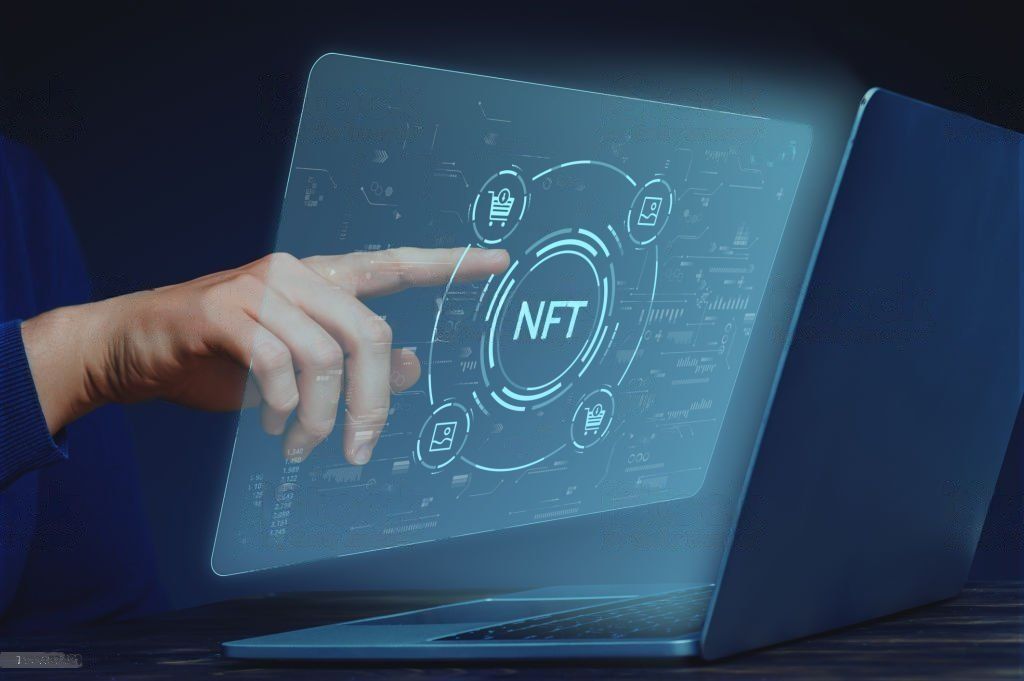NFTs are currently quite well-liked and have a bright future, enthralling mass audiences all over the world. We’ll discuss NFT and Its revolution in the current scenario in this essay.
What are NFTs?
Digital assets or tokens that can be traded between parties are known as Non-Fungible Tokens (NFT). The newest trend in gathering digital assets is NFTs. You can use them to acquire one-of-a-kind works of art, music, or even digital real estate.
Consider the following scenario: Suppose you produce art and tokenize it such that the tokenized piece of art acquires a distinct identity and can then be sold or suctioned to the highest bidder.
These holy cards can provide insightful readings about your life and the years ahead. The information the cards disclose, though, is not definite, so you must realize that. Simply said, these are forecasts based on the intuitions of a Tarot specialist.
These include tangible goods that can be authenticated and tracked on the blockchain, such as footwear, artwork, or even concert tickets.

Tokens using NFTs are non-fungible. They are the digitization of one-of-a-kind goods like art and the creation of “tokens” on the blockchain that is immutable, and uncopyable, and give creators the opportunity to be compensated directly for their work instead of going via a middleman.
Benefits of NFT
Despite the fact that NFTs are a brand-new class of digital assets, we’ll talk about a few of its benefits in this article.
Ownership
Non-fungible tokens’ primary benefit is evident from the ownership evidence. Using NFTs, which run on a blockchain network, it is possible to link ownership to a particular account.
The most significant of all of these properties is that NFTs are indivisible and cannot be distributed among many owners.

Detractors of NFTs have openly claimed that anyone may just take pictures of NFTs and sell or even give them away. But you may see a picture of the NFT. But it’s important to take into account if you genuinely own the asset. For instance, just because you got a picture of the Mona Lisa from the internet doesn’t mean you own it.
Transferability
The second most common response to the query “What is the benefit of NFT?”
It is simple to engage in unrestricted NFT trading. NFTs, for instance, could address the problem of “walled gardens” in the context of games.
Players purchase in-game items from various games to improve their gaming experience.
However, the in-game items can only be utilized inside the boundaries of the games; they cannot be used outside of those settings. Additionally, players run the danger of losing their investment in in-game items if the game becomes outdated.
The main focus of NFT professionals was on these traits. Especially in the area of digital content, NFTs are used in a variety of modern applications. The key argument in favor of NFTs’ continued existence in the field of digital content is the industry’s fragmented structure.

The benefits of non-fungible tokens may encourage the formation of a fresh creative economy.
The creator economy would make a lot of efforts to help content creators avoid having to transfer ownership to the platforms they employ to market their work.
Pros of investing in NFTs
There are a number of reasons why investors might want to buy tokenized assets in NFTs. Some advantages of purchasing NFTs include the following:
- All investors may participate in NFTs. All investors are welcome to invest in tokenized assets. Assets can be tokenized into an NFT to facilitate ownership transfers between parties more effectively and simply.
- To safeguard NFT ownership, a blockchain is utilized. The security of ownership of a specific item can be increased by the digital representation of ownership provided by blockchain technology.
- The chance presents itself to learn more about blockchain technology. By placing a tiny investment in tokenized assets, investors can expand the diversification of their portfolios and get more knowledge about blockchain technology.
- Possession of a one-of-a-kind item: These digital collectibles are non-fungible, making them irreplaceable. Therefore, whether it’s a painting, piece of furniture, digital image, audio clip, and/or other digital assets, owning them will give you the satisfying experience of possessing a one-of-a-kind item.
- When anyone buys NFTs, there will always be a chance for the investment’s value to increase, just like with any other investment.
- Using NFTs is one of the best ways to partition ownership of tangible property: As we all know, it is difficult to fractionalize assets like bonds and real estate. As a result, NFTs offer a considerably simpler method of dividing ownership of asset portfolios. It is simpler to divide a digital asset among several owners than a physical one.
Cons of investing in NFTs
The hesitation of many investors to purchase tokenized assets is understandable. A few disadvantages of NFT investment include the ones listed below:
- NFTs don’t belong to any particular asset class. NFTs are frequently—and incorrectly—viewed as an asset class rather than a technological way of expressing ownership.
The euphoria and general ignorance surrounding NFTs could result in inflated and unstable tokenized asset prices. - Energy is needed in large quantities to produce NFT. The majority of NFTs are now supported by the Ethereum blockchain, which uses the power-hungry proof-of-work operational protocol.
One NFT transaction uses the same amount of electricity as a normal home would use over the course of about two days. - The need for ether may arise (ETH). Because most NFT purchases occur on the Ethereum platform, ether (ETH), the cryptocurrency that powers the blockchain, is typically needed in order to purchase an NFT. Investors that wish to buy NFTs using fiat money, such as the dollar, may not have many possibilities.
Should we invest in NFTs?
NFTs, give creators the opportunity to profit directly from their work. NFTs, do away with middlemen and the commissions that must be paid to them, benefiting investors in the process. Additionally, because of this, the original authors of an NFT will be able to profit every time that the NFT changes ownership.
The majority of NFT investors do so in order to resell their investments and profit. Due to the importance of these collectibles, investing in the right NFT might yield enormous returns. There is a lot of potentials for you to obtain great returns from NFTs if you can make wise investments.
This decentralized strategy distinguishes the NFT market from many other marketplaces, in contrast to many others.
Furthermore, Blue Chips and index funds are still available, so you don’t truly need NFTs to become independently affluent.
The “NFT and Its revolution in the current scenario” blog has come to an end.
If are you wondering to create your own NFT Marketplace, then why wait, feel free to contact our support team.
Keep you informed until then about the most recent technological advancements.




Be the first to comment.